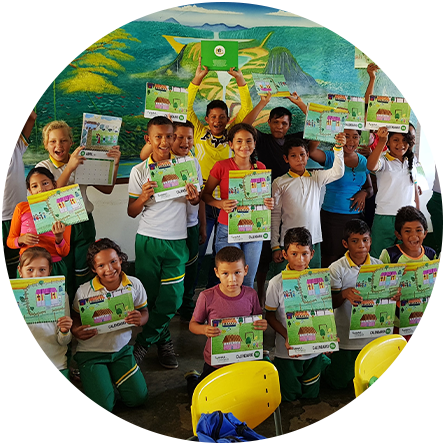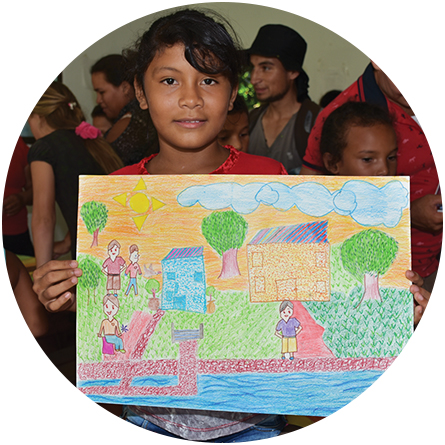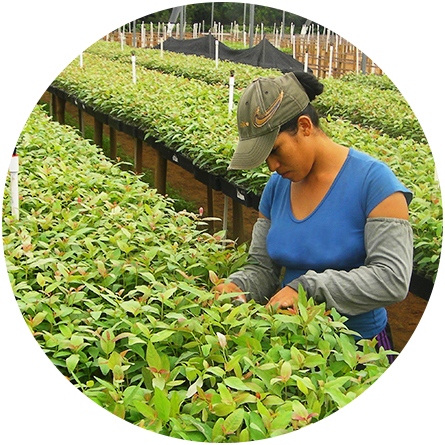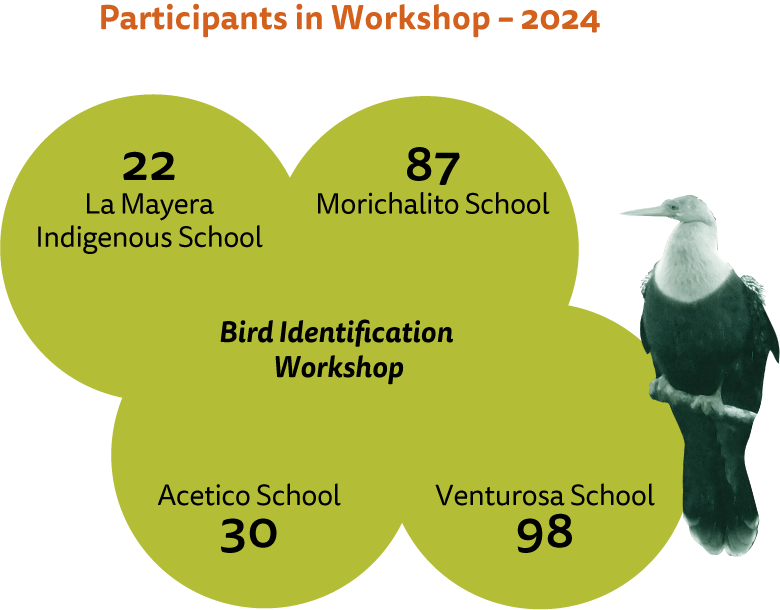
Investing in Education and Schools
FFC ha patrocinado la construcción de instalaciones escolares en la zona, incluyendo zonas de aseo con agua corriente, de las que carecen muchas escuelas. La escuela está siendo utilizada por varios niños de nuestro personal y de la comunidad. La asistencia escolar en las zonas rurales suele ser baja, ya que los niños deben elegir entre asistir a la escuela o trabajar para ayudar a su familia.
En 2019 se observó una tasa de asistencia del 81%, un marcado aumento con respecto a años anteriores, debido principalmente a la inscripción de estudiantes indígenas de la Comunidad Morichalito. Las mejoras a las instalaciones escolares proporcionadas por la FFC han mejorado el acceso a la educación de los niños de la región, ya que antes de las mejoras sólo había dos escuelas en las aldeas locales que se encuentran a unos 90 km de distancia.
Collaboration between the school and Forest First has been key to further addressing some of these challenges. By providing resources such as school supplies and other basic necessities, we have helped reduce economic barriers that prevent many students from continuing their studies, ultimately preventing school dropout. This support has been crucial for many children who, without this assistance, would not have had access to education.
Al ayudar a la comunidad local con sus necesidades de infraestructura educativa, y aliviar ese estrés, hemos observado mejoras en nuestros niveles de compromiso de los empleados.
The school’s principal has noted that with Forest First’s presence in the region, family employment stability has improved. “Many parents, both men and women, have obtained direct or indirect jobs with the company, improving their families’ quality of life and reducing migration to other areas in search of work.” By 2025, the school plans to open a sixth-grade class, allowing students to continue their education toward secondary school.



Conserving the Future: Environmental Education for All
FFC continues to educate the local population on better cattle farming and crop cultivation practices, as well as improved treatment of the environment. We also continue to educate the our workforce in the forestry industry resulting in significant transferable skills development, including literacy.
The Environmental Education Program was created to help children better understand their environment, raise awareness of its conservation, and encourage them to become active guardians of nature. Since its inception, the program has covered topics related to environ-mental care, recognition of local biodiversity, and the protection of key species such as armadillos, mammals, and birds.
In 2024, in collaboration with the Panthera Foundation, four bird identification workshops were conducted, where students participated in activities aimed at recognizing and appreciating biodiversity and its associated habitats. These workshops engaged 237 students from four institutions in the region.


